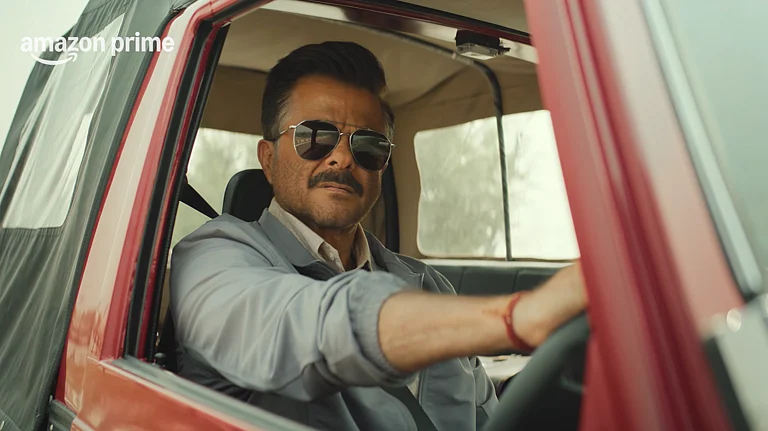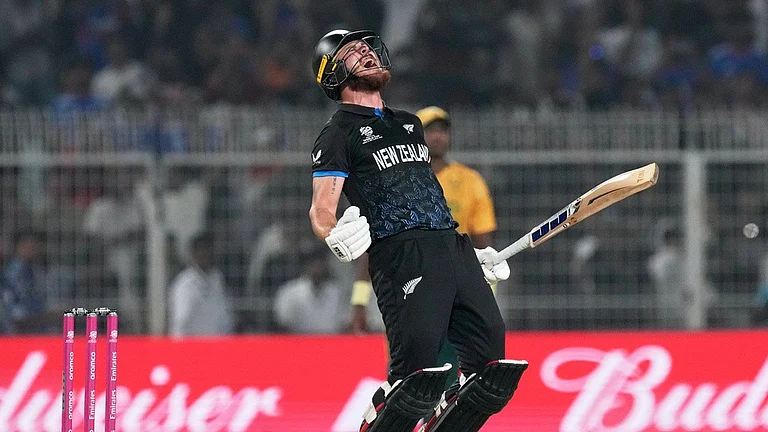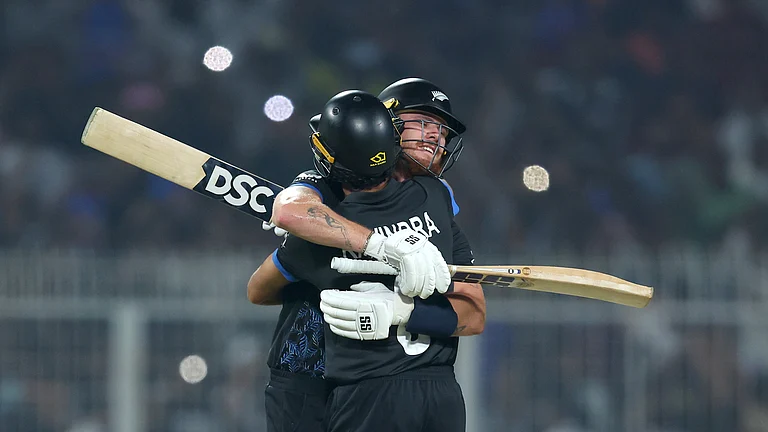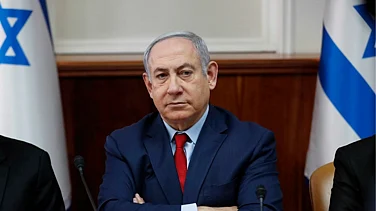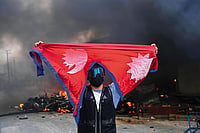Russian Defence Minister Sergei Shoigu has made his first public appearance since the Wagner Group revolted and sought his ouster.
The Yevgeny Prigozhin-led Wagner Group, a private military earlier often referred to as Kremlin's sword-arm, had revolted on Friday against the Russian defence establishment and had sought the sacking of Shoigu and General Staff chief Gen. Valery Gerasimov. The rebellion finally ended on Saturday night when Prigozhin announced that he is halting his military's march to Moscow. It was followed by an announcement of a deal between him and Kremlin.
Though Russian President Vladimir Putin made a statement after Prigozhin revolted and captured a Russian military headquarters, swearing to "punish" those "on path of treason" who had dealt a "stab in the back", no comment or public appearance has since come from Putin, Prigozhin, or Gerasimov.
The purported public appearance of Shoigu in a video released through official channels is the first public apperance by a senior figure. Sky News noted that it's not yet confirmed when or where the video was taken. The Associated Press (AP) said that the "Defence Ministry released a video showing Shoigu flying in a helicopter and then attending a meeting with military officers at a military headquarters in Ukraine".
It was unclear what would ultimately happen to Prigozhin and his forces. Few details of the deal were released either by the Kremlin or Belarusian President Alexander Lukashenko who brokered it. Prigozhin's whereabouts have been unclear since he drove out of Rostov-on-Don in an SUV Saturday. He and his forced had captured the city and the Russian military headquarters there that oversees the Ukraine war efforts.
Before starting the revolt, Prigozhin had blasted Shoigu and Gerasimov with expletive-ridden insults for months, attacking them for failing to provide his troops with enough ammunition during the battle for Bakhmut, the war's longest and bloodiest battle.
Putin stood back from the rift, and Shoigu and Gerasimov remained mum, possibly reflecting uncertainty about Putin's support. Observers said that by failing to end the feud Putin had encouraged Prigozhin to dramatically up the stakes.
Asked by reporters Saturday whether Putin still trusts Shoigu, Kremlin spokesman Dmitry Peskov responded he wasn't aware of any changes in the president's attitude. Commenting on whether any changes in military leadership were discussed during negotiations with Prigozhin, Peskov responded that personnel changes were the exclusive prerogative of Putin as the commander-in-chief and so it wasn't a subject for discussion.
Russian media and commentators speculated that Putin could replace Shoigu with Alexei Dyumin, the governor of the Tula region who had previously served as a a Putin bodyguard and then a deputy defence minister. They noted that Putin, who avoids making decisions under pressure, would likely wait before announcing a shakeup.
The US had intelligence that Prigozhin had been building up his forces near the border with Russia for some time. That conflicts with Prigozhin's claim that his rebellion was a response to an attack on his field camps in Ukraine on Friday by the Russian military, which he said killed a large number of his men. The Defence Ministry denied attacking the camps.
US Rep. Mike Turner, who chairs the House Intelligence Committee, said Prigozhin's march on Moscow appeared to have been planned in advance.
He told CBS Face The Nation, "This is something that would have had to have been planned for a significant amount of time to be executed in the manner in which it was."
US Secretary of State Antony Blinken described the weekend's events as "extraordinary", recalling that 16 months ago Putin appeared poised to seize the capital of Ukraine and now he has had to defend Moscow from forces led by his onetime protege.
He told NBC's Meet The Press, "I think we've seen more cracks emerge in the Russian façade. It is too soon to tell exactly where they go and when they get there, but certainly we have all sorts of new questions that Putin is going to have to address in the weeks and months ahead."
It was not yet clear what the fissures opened by the 24-hour rebellion would mean for the war in Ukraine. But it resulted in some of the best forces fighting for Russia being pulled from the battlefield: the Wagner troops, who had shown their effectiveness in scoring the Kremlin's only land victory in months, in Bakhmut, and Chechen soldiers sent to stop them on the approach to Moscow.
The Wagner forces' largely unopposed, rapid advance also exposed vulnerabilities in Russia's security and military forces. The mercenary soldiers were reported to have downed several helicopters and a military communications plane. The Defence Ministry has not commented.
EU foreign policy chief Josep Borrell, speaking to reporters before chairing a meeting of EU foreign ministers in Luxembourg, where they will discuss more support for Ukraine, said that the revolt showed that the war is "cracking Russia's political system".
Borrell said, "The monster that Putin created with Wagner, the monster is biting him now. The monster is acting against his creator. The political system is showing fragilities, and the military power is cracking."
(With AP inputs)



